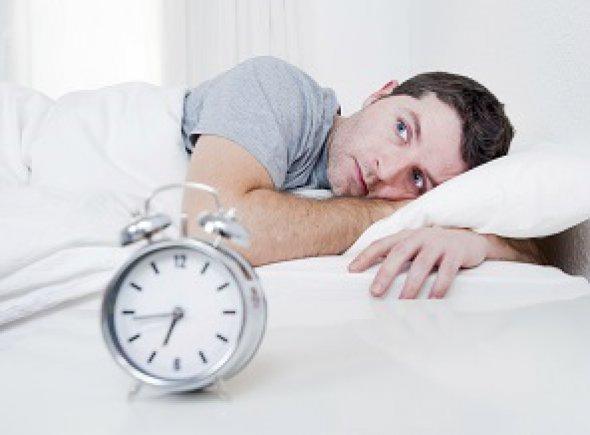New Year's lists abound on how to have a better, more productive, happier 2018. Almost without fail, "get more sleep" is somewhere on the list.
But, how much sleep are we getting? And, how different is sleep across the country?
Anyone who wears a fitbit at night can tell you their own set of sleep data. Each morning, fitbit wearers wake up to a profile that looks something like this.
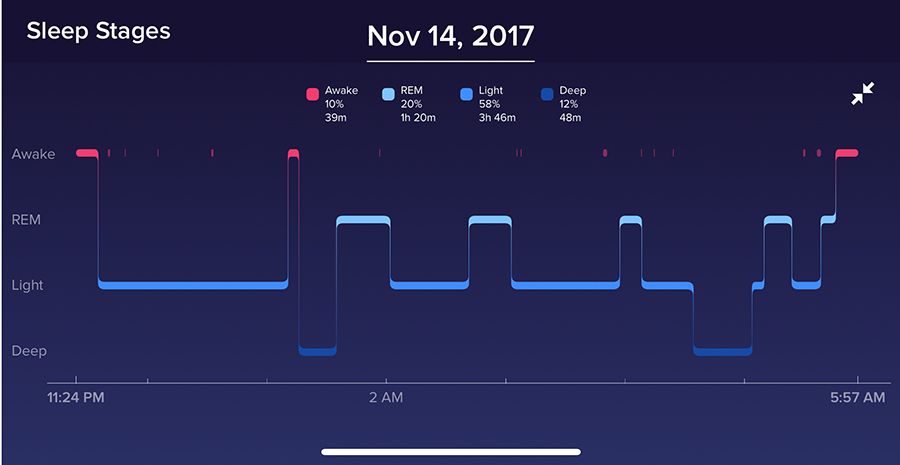
The fitbit tells it's owner when they fell asleep, when they woke and measures the amount of time spent awake. In addition, it can parse out sleep into periods of REM sleep, light sleep and deep sleep throughout the night.
Fitbit took those data from millions of people (that's billions of data points) across the country to make some general observations. Fitbit began tracking sleep stages in March 2017. Some interesting findings are included here.
Women vs. Men
When comparing data on women and men, Fitbit found that women get an average of about 25 minutes more sleep a night than men. Women sleep for an average of 6 hours and 50 min. whereas men sleep for 6 hours and 26 min. Between women and men, the percentage of time spent in each sleep stage (deep, light, REM) did not vary. However, they found that women are more likely to suffer from insomnia than men.
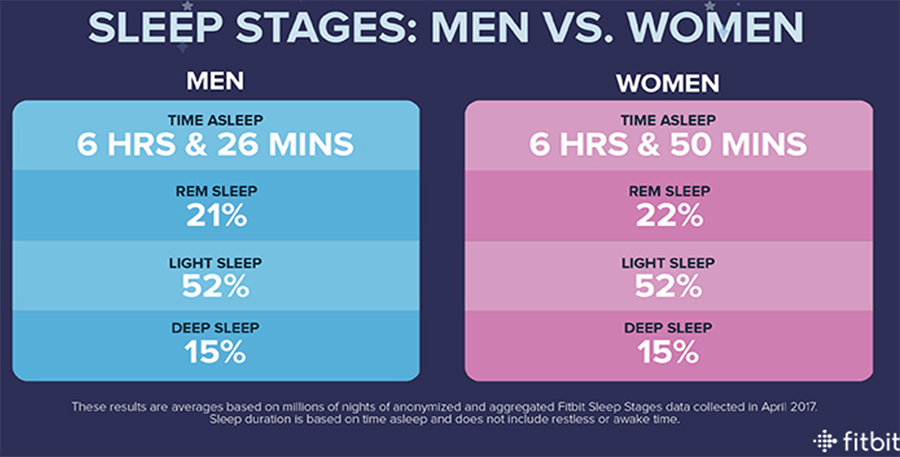
East Coast vs. West Coast
Interestingly, people living on the east coast go to bed about 7 minutes later and wake up 5 minutes later than people on the west coast.
The average bed times of each coast are:
- East Coast 11:21
- West Coast 11:14
The average wake times of each coast are:
- East Coast 7:01
- West Coast 6:56
Old versus Young
Not surprisingly, we get less and less deep sleep as we age. Teenagers can expect to spend around 18% of their time sleeping in deep sleep. This percentage goes down steadily with a steep drop off occurring between 40-50 years old until it becomes only 10-12% after 70 years old
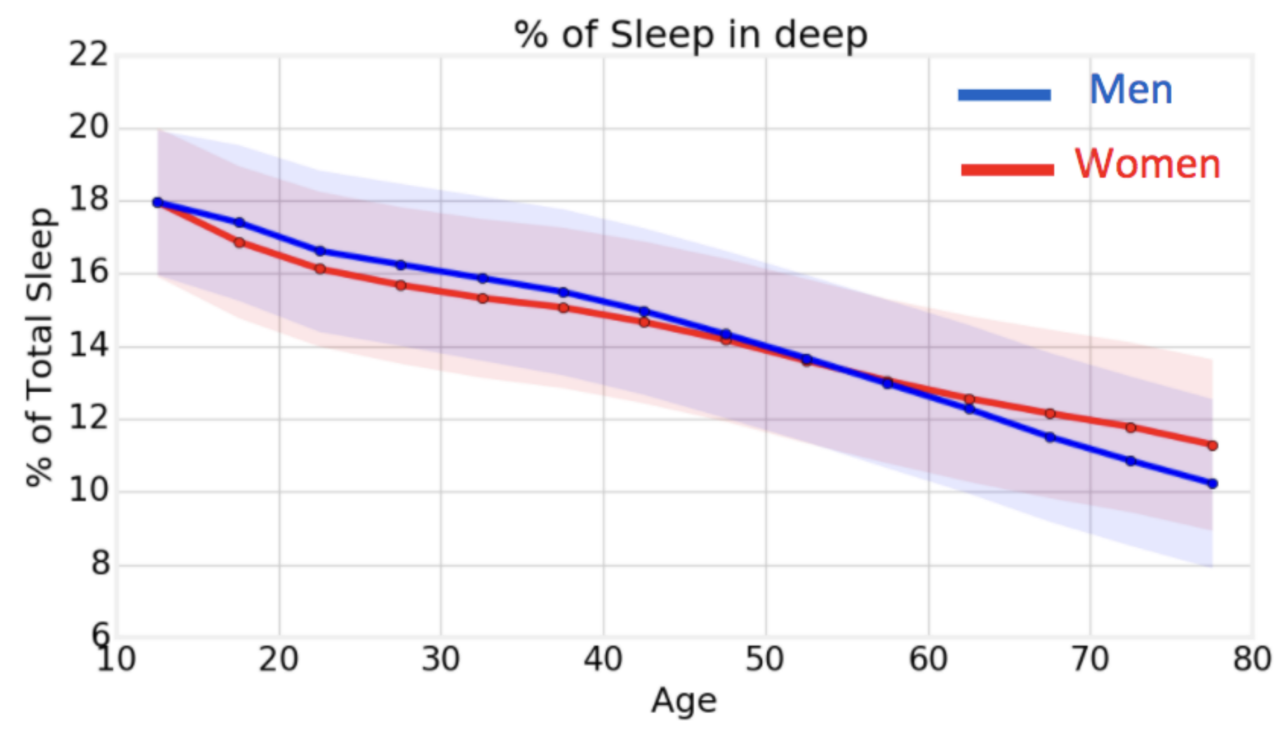
Consistent bedtimes are important for good sleep
The graph below is showing the correlation of how consistently people go to bed at the same time every night (Bedtime Variation, In Minutes) to how long their night's sleep is.
People that keep their bedtime consistent within 30 min. of the same time every night (say, between 11:00 and 11:30) get 35 more minutes of sleep on average than users who have 2 hour bedtime consistency (keeping their bedtime between 11:00pm and 1:00am every night).
Interestingly, half of users have bedtime consistency of less than 57 minutes.

Social Jetlag across the country
Social jetlag is something that you are probably aware of, even if you have not heard the term before. It is the phenomenon that occurs when people stay up later on the weekends. It is called "social jetlag" because staying up late one night is, to your body, just like the jetlag that you experience when you are traveling.
On average, we all tend towards some social jetlag, going to bed, on average, 30 minutes later on the weekends (the weekday average is 11:05 and the weekend average is 11:36.)
But, Boston had the most social jetlag out of any place in the country. Why Boston? Well, if you have ever lived in Boston you will know why. Between September and May, the city is overrun by college students - not exactly the most consistent keepers of strict bedtimes.
On another note, Las Vegas had the least social jetlag of any place telling us that a Tuesday night is simply not that different from a Saturday night in Vegas.
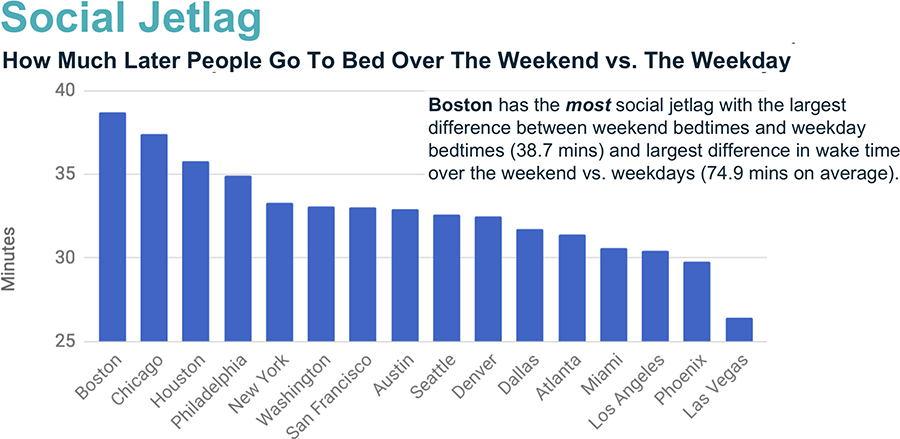
New York may be the city that never sleeps in songs, but, the Fitbit data says that New Yorkers do not have consistent wake times. Wake times vary by 73 minutes. Seattle wakes up the most consistently, wake times vary by 67 min.
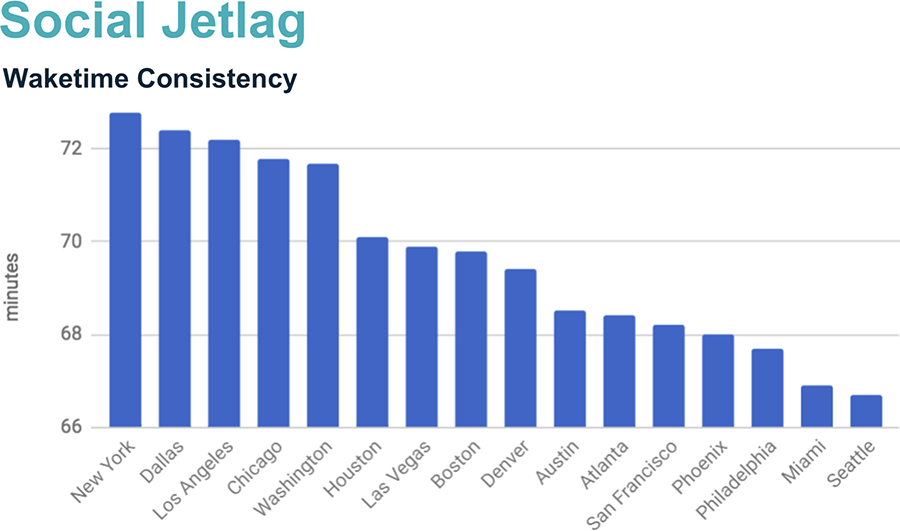
These data are interesting, if you are interested in sleep. But, the interest goes beyond that. This is the largest biometric data set in the world and it was acquired not in a sleep lab with no protocol. The data have not been peer reviewed or published, but, are from people who were living their lives, with all of the both authenticity and variability that that scenario brings.
Source: https://finance.yahoo.com/news/exclusive-fitbits-6-billion-nights-sleep-...
